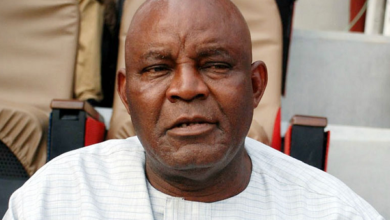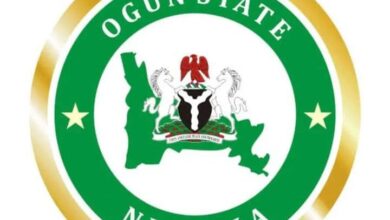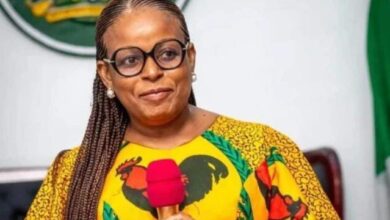Professor Abba Blasts Tinubu: “You In herited A Bad Economy — Now You’ve Ruined It”

(DDM) – Meta Platforms is moving closer to an out-of-court settlement with Nigeria’s data protection regulator, a development that could mark a turning point in how Africa’s largest economy enforces digital privacy against global tech giants.
Diaspora Digital Media (DDM) gathered that both Meta and the Nigeria Data Protection Commission (NDPC) confirmed in a recent court session that settlement talks had advanced significantly, with draft terms already exchanged between their legal representatives.
The move represents a possible resolution to an eight-month standoff that began when the NDPC slammed Meta with one of Nigeria’s most substantial data-related fines, a $32.8 million penalty for allegedly breaching user privacy and cross-border data transfer rules.
At the heart of the dispute is how global tech firms handle African users’ personal data, an issue that has become a growing source of contention across the continent.
The NDPC’s investigation followed a petition by the Personal Data Protection Awareness Initiative (PDPAI), which accused Meta of conducting behavioral advertising on Facebook and Instagram without obtaining users’ consent.
According to the Commission, Meta processed Nigerian users’ personal data unlawfully, violated data transfer protocols, and failed to submit mandatory compliance audits required under the Nigeria Data Protection Act (NDPA).
In February 2025, the NDPC went beyond imposing a financial penalty. It issued eight corrective orders demanding that Meta overhaul its data practices in Nigeria, a bold step that signaled Nigeria’s growing determination to hold Big Tech accountable.
Meta initially resisted the ruling, filing legal challenges and alleging that the NDPC violated due process.
The company’s lawyers argued that the enforcement actions lacked procedural fairness and did not comply with administrative standards under Nigerian law.
The matter soon reached the Federal High Court in Abuja, presided over by Justice James Omotosho, where both sides appeared ready for a prolonged courtroom battle.
However, during their most recent court appearance, the tone appeared markedly different.
Meta’s lead counsel, Fred Onwuobia, requested that the court defer pending motions to allow settlement negotiations to continue, while NDPC’s counsel, Adeola Adedipe, confirmed that meaningful progress had been made.
Justice Omotosho welcomed the new approach, urging both sides to pursue dialogue rather than litigation and adjourned the case until October 31, giving the parties several weeks to finalize and present a possible consent judgment.
The timing of this development is critical for Meta, which has faced multiple regulatory challenges in Nigeria this year.
Earlier in 2025, the Federal Competition and Consumer Protection Commission (FCCPC) secured a tribunal ruling upholding a $220 million fine against Meta for alleged competition and consumer protection violations.
That decision showcased Nigeria’s willingness to take on multinational corporations, a stance that has emboldened other regulators across the continent.
While the details of the potential NDPC settlement remain confidential, industry observers are divided on whether Meta will pay the full fine, negotiate a reduced amount, or agree to specific operational reforms in exchange for leniency.
Either way, experts say the implications are far-reaching.
Nigeria’s assertive approach signals that African governments are no longer passive spectators in the global tech arena.
Countries such as Kenya, Ghana, and South Africa have also strengthened their data protection laws, sending a clear message that Africa’s digital markets are evolving into regulated environments rather than free zones for tech experimentation.
For ordinary Nigerian users, the key question remains whether these actions will lead to visible changes in how platforms like Facebook and Instagram operate.
Will users see clearer consent mechanisms for targeted advertising?
Will data-sharing policies be made more transparent?
Will Nigerians gain stronger control over what happens to their digital identities online?
These are the outcomes that matter most to users, beyond the headlines about multimillion-dollar fines.
The NDPC’s enforcement action also serves as a warning to other global tech companies operating in Nigeria: compliance with data protection laws is no longer negotiable.
Whether through court rulings or negotiated settlements, the era of unchecked data practices appears to be ending.
As the October 31 deadline approaches, analysts say the final terms of Meta’s deal could shape how other African nations confront similar disputes.
A settlement that enforces tangible operational reforms could become a continental precedent, demonstrating that African regulators have the power to compel structural accountability from the world’s biggest tech players.
Conversely, if Meta merely pays a reduced fine, critics fear it could send a message that financial penalties are just another cost of doing business for multinationals.
Regardless of the outcome, one thing is clear, Nigeria’s regulatory stance has shifted the balance of power.
For the first time, an African watchdog has brought a Silicon Valley titan to the negotiating table, proving that digital sovereignty is no longer a Western monopoly.
Post Views: 68





